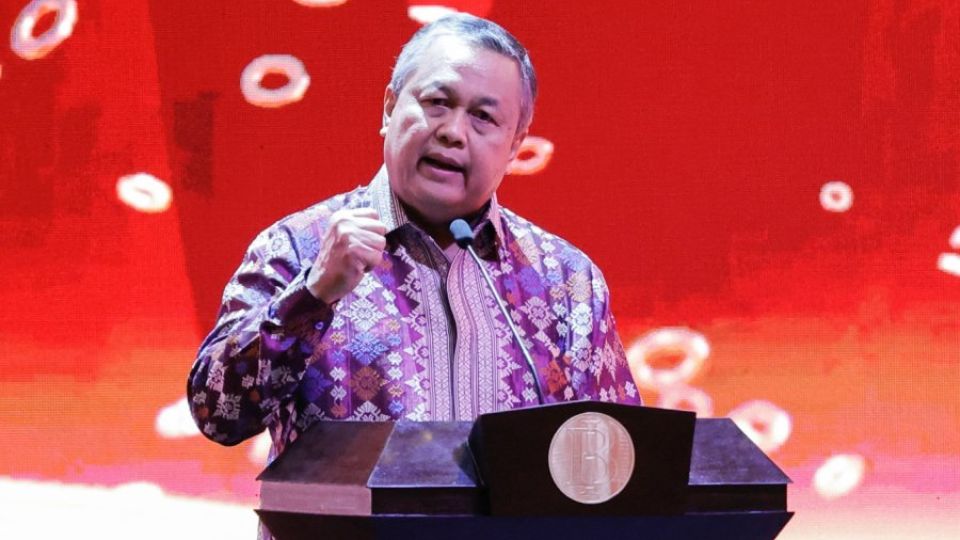January 20, 2023
JAKARTA – Bank Indonesia (BI) has announced that a rate hike in January is adequate to meet its inflation target, which economists take to mean that the central bank is ending its monetary tightening phase.
At its board of governors meeting on Thursday, BI upped the benchmark seven-day reverse repo rate (7DRRR) by 25 basis points (bps) to 5.75 percent, the same increase as in December.
The lending and deposit facility rates also rose by 25 bps to 6.50 percent and 5 percent, respectively, following the key policy rate.
The central bank’s latest rate action was in line with estimates published beforehand by state-owned Bank Mandiri and publicly listed private-lender Bank Danamon.
“The more calculated decision on the policy rate increase is a follow-up step to ensure continued lower inflation expectations and headline inflation in a front-loaded, preemptive and forward-looking measure to maintain core inflation,” Perry told reporters after the monthly two-day monetary-policy meeting.
When asked by reporters about the possibility of a further increase, Perry asserted that the rate hikes from August through January were already “adequate” to achieve the bank’s targets on core and headline inflation.
After the government raised fuel prices in September, the central bank estimated that headline inflation would rise above 6 percent in December due to upward pressure on prices of goods and services with volatile and administered prices, notably food and transportation.
However, government efforts to alleviate inflation pressure by mobilizing regional budgets to subsidize transportation and fixing staple food supply chains have helped bring down the annual consumer price index growth from 5.95 percent in September to 5.51 percent in December.
Core inflation, which measures the year-on-year (yoy) rise in consumer prices excluding government-controlled prices and volatile food prices, and which is the main determinant of BI’s interest-rate decisions, was only 3.36 percent last month, well within the central bank’s target range of 2 to 4 percent.
As such, the central bank revised down its core inflation forecast from “below 4 percent” to “below 3.7 percent” in the first half of 2023.
For headline inflation, meanwhile, the bank maintains its view that the figure will come back down to the 2-to-4-percent target range in the second half of this year.
“Bank Indonesia believes that the 7DRRR hike of 225 bps from August 2022 to 5.75 percent is adequate to ensure core inflation [stays] within the [range of] 3 plus/minus 1 percent in the first semester of 2023,” Perry said.
The rupiah’s exchange value, having appreciated 3.18 percent year-to-date (ytd) against the United States dollar, has outperformed currencies of peer countries like the Malaysian ringgit and the Indian rupee, which appreciated 2.04 percent ytd and 1.83 percent ytd, respectively.
Foreign capital inflows to the domestic financial market have helped the rupiah strengthen, Perry said, as investors perceived Indonesia’s macroeconomic fundamentals as stable, financial securities yields as comparatively attractive and market uncertainty as relatively low.
In addition to its existing policy on trading government bonds in the secondary market, the central bank plans to expand its monetary operations to the use of forex term deposits for natural resources export revenues starting in mid-February.
BI data point to US$4.6 billion in net portfolio-investment inflows per Jan. 17 since the turn of the year.
“Bank Indonesia predicts that the rupiah will continue to strengthen in line with the improving economic prospects, and therefore will reduce inflation, ” Perry continued.
The central bank is expected to hold back on further changes to its key interest rate for the rest of the year, Bank Mandiri economist Faisal Rachman told The Jakarta Post on Thursday.
Due to the perceived less-hawkish stance of several major central banks, including the United States Federal Reserve (Fed), capital inflows to the bonds market have contributed to the rupiah appreciation and lessened the inflationary pressure and hence the need to raise rates.
Headline inflation is estimated to ease in the second half of this year and fall to 3.6 percent yoy in December.
“[BI could] shift its stance [in response to] major events that could significantly change the outlook,” Faisal cautioned, however.
The signal to not raise rates further was “reckless” in light of the recent rice-price increase and the possibility of rate-policy shifts in major central banks, Center of Economic and Law Studies (CELIOS) director Bhima Yudhistira opined.
The government is racing against time to import 425,000 tonnes of rice this month, as imports are not allowed during the next few months due to the harvesting period.
BI data show that the rice price has increased by 1.85 percent yoy to Rp 13,700 per kilogram.
“There is room for three more rate hikes,” Bhima told the Post.


